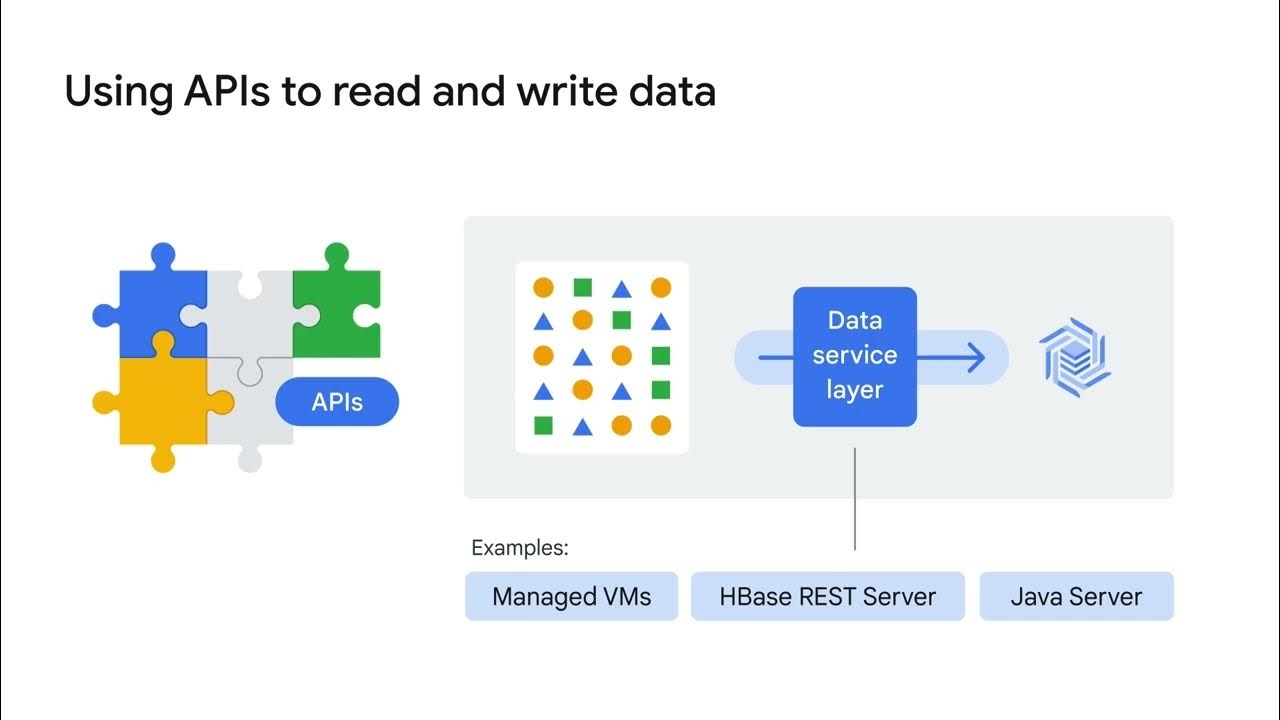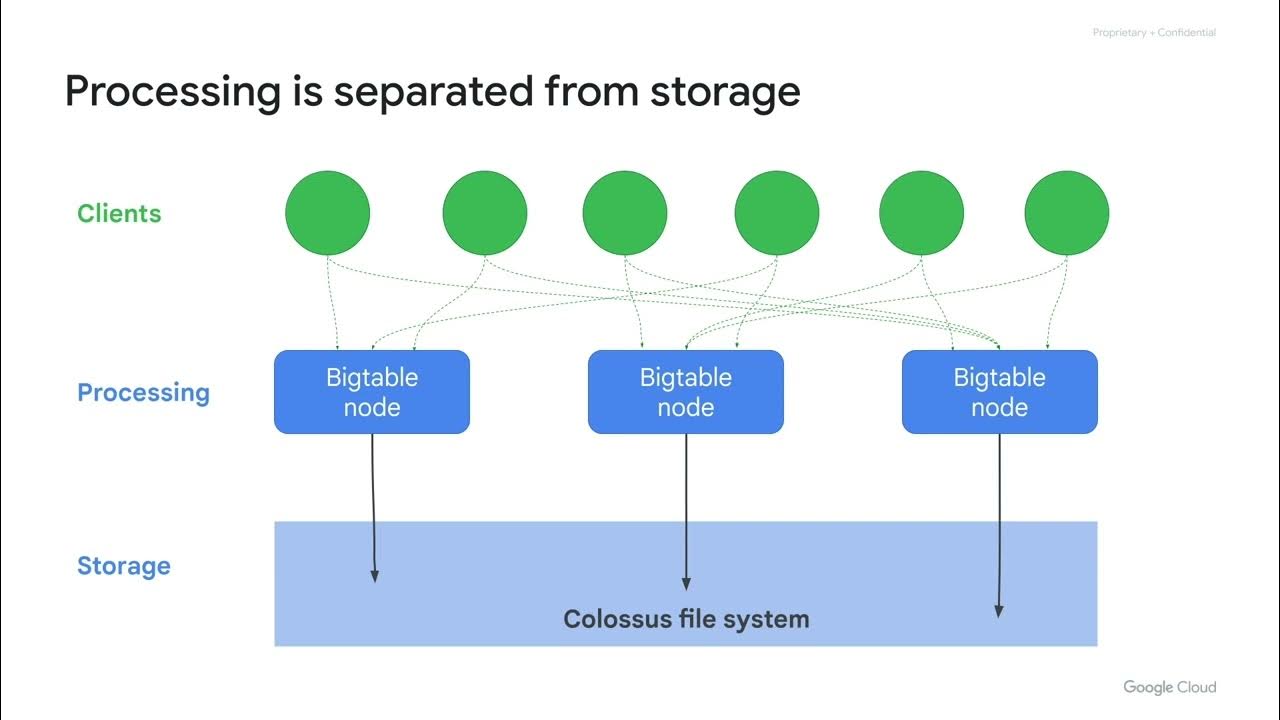Cloud Bigtable as a NoSQL Option
Summary
TLDRThis video module introduces Cloud Bigtable, a high-performance NoSQL database service designed to handle non-relational data requirements. It emphasizes its suitability for large operational workloads, real-time analytics, and IoT applications. The module highlights Cloud Bigtable's capabilities in providing seamless scalability, low latency, and data protection through managed services. It integrates well with various industry-standard tools, ensuring efficient data operations. Additionally, it ensures data security with encryption and easy access control, making it a robust solution within the Google Cloud Platform ecosystem.
Takeaways
- 🚀 Cloud Bigtable is a NoSQL database designed to meet non-relational database requirements with high performance for large operational workloads.
- 📈 It is ideal for handling vast amounts of data, making it suitable for applications like IoT, user analysis, financial data analysis, and time series data.
- 🔄 Originally developed for internal use at Google, Cloud Bigtable set the foundation for the NoSQL industry and has been publicly available since 2015.
- ⚡ The service offers real-time access to petabytes of data with low latency, allowing for seamless scalability with billions of rows and thousands of columns.
- 🔧 Cloud Bigtable automatically scales without downtime, ensuring changes in distribution configurations are applied instantly.
- 🔒 All data is encrypted in transit and at rest, with access controlled through Cloud IAM permissions, ensuring robust security measures.
- 🤝 It integrates well with other Google Cloud services and industry-standard tools like Hbase, Hadoop, BigQuery, and Cloud Data Flow.
- 🛡️ Cloud Bigtable is designed for high availability, supporting long-running applications with reliable uptime and efficient workload isolation.
- 📊 The architecture separates processing from storage, utilizing tablets to balance query loads effectively.
- 🌐 As the demand for queries increases, Cloud Bigtable can linearly scale by adding more nodes, enhancing processing speed and efficiency.
Q & A
What is Cloud Bigtable?
-Cloud Bigtable is a NoSQL database service designed to handle non-relational database requirements, providing high performance for large operational workloads, such as real-time analytics and IoT applications.
What types of data can Cloud Bigtable handle?
-Cloud Bigtable is suitable for various types of data including Internet of Things (IoT) data, user analytics, financial data analysis, time-series data, and graph data.
How does Cloud Bigtable ensure high availability?
-Cloud Bigtable provides high availability through replication, ensuring that applications can continuously operate even during failures.
What are the scaling capabilities of Cloud Bigtable?
-Cloud Bigtable can automatically scale to handle billions of rows and thousands of columns, allowing it to manage petabytes of data with low latency.
How does Cloud Bigtable handle data encryption?
-All data in Cloud Bigtable is encrypted both in transit and at rest, ensuring data security and compliance.
What makes Cloud Bigtable suitable for real-time analytics?
-Cloud Bigtable's design supports high throughput and low latency, making it ideal for processing real-time analytics from numerous IoT sensors or other data sources.
Can Cloud Bigtable integrate with other tools and services?
-Yes, Cloud Bigtable is compatible with industry-standard tools such as HBase, Hadoop, BigQuery, and Cloud Dataflow, facilitating data management and analysis.
What advantages does Cloud Bigtable offer for disaster recovery?
-Cloud Bigtable offers built-in backup features, providing disaster recovery options to safeguard against data loss.
What is the architecture of Cloud Bigtable like?
-The architecture of Cloud Bigtable separates processing from storage, using a pool of front-end servers and nodes to efficiently manage workload distribution through continuous row blocks called tablets.
How is performance affected when adding more nodes to Cloud Bigtable?
-Performance scales linearly with the addition of nodes, meaning each additional node increases the processing capacity and improves overall speed.
Outlines

This section is available to paid users only. Please upgrade to access this part.
Upgrade NowMindmap

This section is available to paid users only. Please upgrade to access this part.
Upgrade NowKeywords

This section is available to paid users only. Please upgrade to access this part.
Upgrade NowHighlights

This section is available to paid users only. Please upgrade to access this part.
Upgrade NowTranscripts

This section is available to paid users only. Please upgrade to access this part.
Upgrade Now5.0 / 5 (0 votes)





